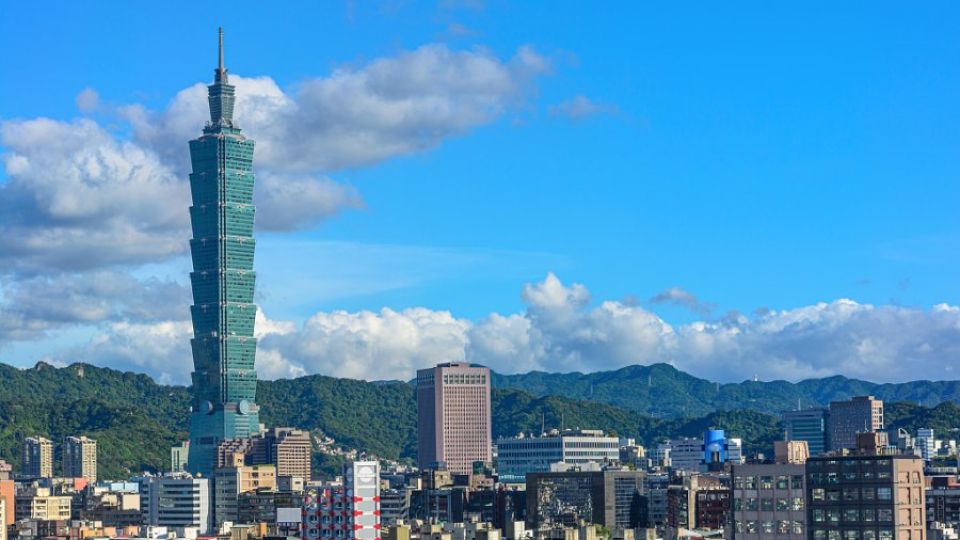January 10, 2024
BEIJING – US urged to turn non-support stance of ‘independence’ into concrete action
Taiwan’s ruling Democratic Progressive Party has been pursuing a policy of relying on the United States to seek “independence” and resisting reunification to a much greater extent than previous authorities on the island, which experts said has significantly escalated tensions in cross-Strait relations.
Meanwhile, Beijing has taken steps to further limit the US’ space to leverage the “Taiwan card”, demonstrating its strategic determination and confidence in countering “Taiwan independence”, they said at a recent program on Southeast Television that focused on cross-Strait relations.
China announced sanctions on Sunday against five defense industry companies in the US for being involved in weapons sales to Taiwan, as it urged Washington to stop arming the island.
Lei Chien, chairwoman of the National Women’s League on Taiwan, said: “Despite their claims of not supporting ‘Taiwan independence’, if we look at the actions of the US, they are indeed enhancing Taiwan’s military capabilities, even through the US Congress.”
Despite Beijing’s call for the US to stop arming Taiwan, Washington continued to provide significant military support to the island last year. For the first time it delivered military equipment to Taiwan under the Presidential Drawdown Authority, allowing the US to pull the weapons directly from US Defense Department inventories.
Meanwhile, Taiwan’s proposed “defense” budget for 2024 is NT$606.8 billion ($19.6 billion), roughly 2.5 percent of Taiwan’s gross domestic product, which the DPP authorities said displayed its determination to guard the island.
Taiwan’s annual “defense” spending has been on the rise since Tsai Ing-wen of the DPP took office in 2016. “Defense” spending has increased from NT$355.7 billion, or 2 percent of GDP, in 2017 to NT$580.3 billion in 2023, which is roughly 2.4 percent of GDP, Taiwan media reported.
Starting from Jan 1, the conscription period for compulsory military service in Taiwan was extended from the previous four months back to one year, which the DPP authorities claimed is aimed at improving its “defense” capability.
Zhu Weidong, director of the Institute of Taiwan Studies at the Chinese Academy of Social Sciences, said that the US has attempted to pre-position a battlefield in Taiwan, sending signals that could increase fantasies among pro-independence forces to make further provocations.
Tsai Cheng-yuan, former deputy secretary-general of the Kuomintang, said that the DPP authorities, in collaboration with the US, aimed to militarize Taiwan’s society and create confrontation with the mainland.
Experts said Beijing made clearer demands to Washington regarding the Taiwan question, during a meeting between the leaders of China and the US in San Francisco in November, reflecting its strategic determination in resolving the Taiwan question.
Beijing called on the US to translate its non-support for “Taiwan independence” into concrete actions that support China’s peaceful reunification at the meeting. The US reiterated its stance of non-support for “Taiwan independence”.
Wu Yongping, director of the Taiwan Research Institute at Tsinghua University, said that with China demanding that the US support its peaceful reunification, Beijing’s position on the Taiwan question in its relations with the US has become more focused, clear and distinct.
The bottom line of the US in the Taiwan Strait is that it does not want a war, and the most likely cause of war now is “independence”, he said, adding that “In the long run, the US should recognize that China’s peaceful reunification is in its own interest.”
Lee Sheng-feng, deputy chairman of Taiwan’s New Party, said that the US claim of non-support for “Taiwan independence” is a way to keep the separatist forces under control.
“It is like the US is holding a leash, allowing it to bite when necessary and reining it back when deemed inappropriate,” he said.


